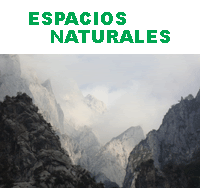Bibliografía del capítulo
Álvarez, Luis y Álvarez, Walter (1983). Experimental
evidence that an asteroid impact led to the extinction of many species
65 million years ago. Proceedings
of the NationalAcademy
of Sciences 80 (2), pp. 627-642.
Becker, L.; Poreda, R.J.; Hunt, A.G.; Bunch,
T.E.; Rampino, M. (2001). Impact Event at the
Permian-Triassic Boundary: Evidence from Extraterrestrial Noble Gases
in Fullerenes. Science, Vol. 291, Issue 5508,
pp. 1530-1533.
Belet, J.M. (2001). Variations
tardiglaciaires et holocènes de la limite supérieure de la forêt dans
les Pyrénées centrales: l’exemple
du Vallon d’Estibère (Hautes-Pyrénées, France).
Thèse. Université Paul Sabatier. Toulouse, 245 pp.
Benton, M. J. (2004). Vertebrate
Paleontology. 3ª Ed. Blackwell Science Ltd, Reino Unido.
Benton, M. J. (2005). When
life nearly died: the greatest mass extinction of all time.
Thames & Hudson, Londres.
Blanco, E.; Casado, M.A.; Costa, M.;
Escribano, R.; García, M.; Gévora, M.; Gómez, A.; Gómez, F.; Moreno,
J.C.; Morla, C.; Regato, P.; Sainz, H. (1997). Los
bosques ibéricos. Planeta, Barcelona.
Brand, U.; Posenato, R.; Came, R.; Affek,
H.; Angiolini, L.; Azmy,
K.; Farabegoli, E. (2012). The end‐Permian
mass extinction: A rapid volcanic CO2 and CH4 climatic catastrophe.
ChemicalGeology. Elsevier, núm 322, 323, pp: 121-144.
Caballero García de Arévalo, Angel (2017). Historia
de la Tierra. Tabla del tiempo geológico. Digital-CSIC,
Instituto andaluz de ciencias de la Tierra, Univ. Granada.
Chapman, A. D. (2009). Numbers
of Living Species in Australia
and the World. 2ª Ed. Australian Biodiversity
Information Services, Australia.
Crane, P. R. ; Lidgard, S. (1989). Angiosperm
diversification and paleolatitudinal gradients in cretaceous floristic
diversity. Science, núm. 246, pp: 675-678.
Datcharry, Bernard (2005). El
tiempo geológico. Tabla cronoestratigráfica. Museo
Geominero, Instituto Geológico y Minero de España, Madrid.
Dann, J.; de Wit, M. J.; White, S. H.;
Zegers, E. (1998).Vaalbara, Earth's oldest
assembled continent? A combined. structural, geochronological, and
palaeomagnetic test. Terra Nova, vol. 10, pp.
250-259.
Dawkins, Richard (1993). El
gen egoísta. Las bases biológicas de nuestra conducta.
Salvat, Barceona, traducida por Juana Robles Suárez de The
selfish gene (1989), Oxford University Press.
Emiliani, C. (1993). Milankovitch
theory verified. Nature, núm. 364, pp:
583-584.
Ferreras Chasco, Casildo; Fidalgo,
Concepción. (1999). Biogeografía y
Edafogeografía. Síntesis, Madrid.
Godefroit, Pascal; Cau, Andrea; Dong-Yu, Hu;
Escuillié, François; Wenhao, Wu; Dyke, Gareth (2013). A
Jurassic avialan dinosaur from China resolves the early phylogenetic
history of birds. Nature, núm. 498 (7454),
pp. 359-362.
Hautmann, M. (2012). Extinction:
End-Triassic Mass Extinction. eLS: John Wiley
& Sons, Ltd. pp. 1-10.
Hengeveld, R. (1990). Dynamic
Biogeography. Cambridge University Press, Cambridge.
Hill, R. S. (1992). Nothofagus:
evolution from a southern perspective. Trends
in Ecology, núm. 7, pp: 190-194.
Hsü, K. J. (1973). Quando
il Mediterraneo si disseccò. Le Scienze, núm.
36, pp: 19-29.
Hsü, K. J.; Ryan, W. B. F.; Cita, M. B.
(1973). Late Miocene dessication of the Mediterranean.
Nature, núm. 242, pp: 240-244.
Izco, Jesús; Barreno, M.; Brugés, M.;
Costas, M.; Devesa, J.; Fernández, F.; Gallardo, T.; Llimona, X.;
Salvo. E; Talavera, S; Valdés, B. (1998). Botánica. McGraw-Hill,
Madrid.
Jalut, G. (1988). Les
principales étapes de l’histoire de la forêt pyrénéenne française
depuis 15.000 ans. Monografías del Instituto
Pirenaico de Ecología 4, Homenaje a Pedro Montserrat, 609-615.
Knoll, A.H.; Walter, M.R.; Narbonne, G.M.;
Christie-blick, N. (2004). A new period for
the geologic time scale. Science 305 (5684),
pp: 621-622.
Labandeira, C.C.; Sepkoski, J.J. (1993). Insect
diversity in the fossil record. Science, núm.
261, pp. 310-315.
Latorre, Amparo; Silva, Francisco J. (2002).
El tamaño del genoma y la
complejidad de los seres vivos. Mètode, núm
32, Instituto Cavanilles de Biodiversidad y Biología Evolutiva,
Universitat de València.
Limaye, S. S., et al (1992). Satellite
monitoring of smoke from the Kuwait oil fires.
Journal of Geophysical Research, núm 97, pp: 14551-14563.
López Martínez, Nieves; Truyols Santonja,
Jaime (1994). Paleontología: conceptos y métodos.
Síntesis, Madrid.
Malloch, D. W.; Pirozynski, K.A.; Raven P.
H. (1980). Ecológical and evolutionary
significance of mycorrhizal symbioses in vascular plants (a review).
Proc. Nat. Acad. Sci., núm: 77, pp: 2113-2118.
Margulis, Lynn (2003). Una
revolución en la evolución. Escritos seleccionados.
Collecció Honoris Causa. Univ. de Valencia, Valencia.
Meléndez Hevia, Ignacio (2004). Geología
de España. Una historia de seiscientos millones de años.
Rueda, Madrid.
Milankovitch, Milutin (1941). Canon
of Insolation and the Ice Age Problem. Belgrade: Zavod
za Udz̆benike i Nastavna Sredstva.
Montero, Ángel; Wagner, Roberto H. (2008). Las
floras terrestres a través de los tiempos geológicos.
IMGEMA Jardín Botánico de Córdoba y Ayuntamiento de Córdoba, Córdoba.
Montserrat, J. M. (1992). Evolución
glaciar y postglaciar del clima y la vegetación en la vertiente sur del
Pirineo: Estudio palinológico. Monografías
del Instituto Pirenaico de Ecología 6, 1-151.
Ogg, J.G. (2004). Status
of Divisions of the International Geologic Time Scale.
Lethaia, núm 37, vol. 2, pp: 183-199.
Pignatti, S. (1988). La
vita dei vegetali in Italia,
en Honsell, E; Giacomini, V; Pignatti, S. (coord.) La vita delle
piante. UTET, Turín, pp. 347-521.
Pines, Maya (2001). The genes
we share with yeast, flies, worms, and mice: new clues to human health
and disease. Howard Hughes Medical Institute,
ChevyChase, Estados Unidos.
Raven, Peter; Evert, Ray; Eichorn, Susan
(1992). Biología de las Plantas. Reverté,
Barcelona.
Rogers, J. J. (1993). India
and Ur. Geological Society of India. Núm: 42,
vol. 3, pp: 217–222.
Rogers, J. J. (1996). A
history of continents in the past three billion years.
Journal of Geology. Núm. 104, pp: 91–107, Chicago.
Ron, Eugenia; Sobota, Tomás (2001). Manual
de Botánica (v.1.0). Proyecto de
Innovación Educativa (PIE 99/2). Universidad Complutense de Madrid,
Madrid.
Rowland, Stephen M.; Rodríguez, Margarita G.
(2014). A Multicellular Alga with Exceptional
Preservation From The Ediacaran of Nevada.
Journal of Paleontology, núm. 88(2), pp. 263-268.
Rubin et al. (2000). Comparative
genomics of the eukaryotes. Science núm.
287(5461), pp: 2204–2215.
Sanchis Duato, Enrique; Fos Causera,
Mariano; Bordón Ferré, Yolanda (2004). Biogeografía.
Ed. Univ. Pol. de Valencia, Valencia.
Sankaran, A. V. (2003). The
supercontinent medley: recent views. Current
Science, Vol. 85, No. 8, pp: 1121-1123.
Scotese, C. R. (2001). Atlas
of Earth History, Volume 1. Paleogeography, PALEOMAP
Project, Arlington, Texas.
Selli, R. (1973). Il
Mediterraneo nel Miocene superiore: un mare sovrasalato.
Le Scienze, núm. 56, pp: 20-21.
Shu, D. G.; Morris, S. C.; Han, J.; Zhang,
Z. F.; Yasui, K.; Janvier, P.; Chen, L.; Zhang, X. L. ; Liu,
J.-N.; Li, Y.; Liu, H.-Q (2003). Head and
backbone of the Early Cambrian vertebrate Haikouichthys.
Nature, vol. 421 (Issue 6922), pp: 526-529.
Sokolov, B. M. (1952). On
the age of the old sedimentary cover of the Russian Platform.
Izvestiya Akademii Nauk SSSR, Seriya eologicheskaya.
Vargic, Martin (2015). History
of the Universe. Aplicación móvil.
Veblen, T. T.; Hill, R. S.; Read, J (1996). The
ecology and Biogeography of Nothophagus
Forest. Yale University Press.
Wagner, R.H. (1993). Climatic
significance of the major chronostratigraphic units of the Upper
Palaeozoic. Compte Rendu XII ICC-P (1).
Weihaupt, J.G. (1976). “The Wilkes
Land Anomaly: Evidence for a possible
hypervelocity impact cráter”. Journal of Geophysical
Research, vol. 32, pp: 5651-5663.
WIKIPEDIA, La Enciclopedia
libre, http://es.wikipedia.org/wiki/.
Se han consultado diversas voces, términos y datos contenidos en esta
página web.
Wingate, M.T.D. (1998). Palaeomagnetic
test of the Kaapvaal-Pilbara (Vaalbara) connection at 2.78 Ga.
South African Journal of Geology; December 1998; v. 101; no. 4; pp.
257-274.
Zhang, Zhi-Qiang (2011). Animal
biodiversity: An outline of higher-level classification and survey of
taxonomic richness. Magnolia Press. Auckland, Nueva
Zelanda.
Zegers, T.E.; Ocampo, A. (2003). Vaalbara
and Tectonic Effects of a Mega Impact in the Early Archaen 3470 Ma.
European Space Agency, ESTEC, SCI-SB, Keplerlaan 1, 2201 AZ Noordwijk.
Zunino, Mario; Zullini, Aldo
(2003). Biogeografía: la dimensión
espacial de la evolución. Fondo de cultura económica,
México, traducida por Marcela Pimentel de Biogeografia: La dimensione
spaziale dell´evolizione. Casa Editrice Ambrosiana, Italia.
|














